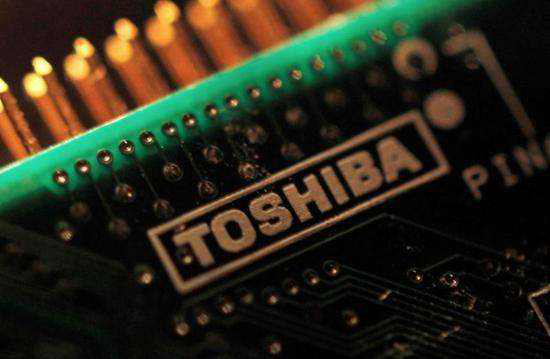Toshiba signed a definitive agreement to sell its flash memory chip business to a consortium led by Bain Capital for a price of 2 trillion yen ($17.7 billion). After months of controversial negotiations, the agreement is closer to completing the transaction.
The Bain Consortium includes Apple, Dell, Korea Semiconductor giant SK Hynix, and HOYA, a Japanese optical instrument manufacturer. On September 28, Toshiba stated in a statement that it will own a certain proportion of shares.
On September 28th, Beijing time, Bloomberg reported that the total value of the above transactions may change due to capital expenditure. The purpose of the agreement is to ensure that Toshiba maintains control of important businesses in Japan while ensuring that it can obtain the necessary funds to repair its balance sheet.

Toshiba sells nearly 18 billion U.S. dollars to sell chips
Toshiba sells its chip business primarily to pay back billions of dollars in losses from the US nuclear business. It must raise sufficient funds before March next year to avoid the fate of delisting from the Tokyo Stock Exchange. Toshiba expects the deal to be completed by March 31 next year.
This transaction has experienced twists and turns since January this year, and Apple has played a central role in the final transaction.
According to Bloomberg, Apple is keen on the chip business because the importance of flash chips is that it can be used to store photos, videos and other data on each iPhone and iPad. Only a few companies in the world have such high-end technologies. Samsung Electronics, the main manufacturer, is a competitor of Apple, and controls about 40% of the global flash chip market. Therefore, for Apple, investing in Toshiba's flash memory chip units will help maintain market competitiveness and improve Apple's bargaining position.
The amount of investment in the acquisition is: 355.5 billion yen for Toshiba, 221 billion yen for Bain Capital, 27 billion yen for HOYA, 395 billion yen for Hynix, US investment including Apple, Seagate, Kingston, Dell, etc. The person will provide 415 billion yen in financing. Pangea, a consortium formed by Bain Capital’s US-Japan-Korea alliance, also plans to obtain approximately 600 billion yen in loans. In addition, Toshiba stated in a statement that Japanese state-owned funds and banks also expressed interest in investing in certain conditions in the future.
According to the agreement, Toshiba and HOYA will hold most of the shares of the Consortium, Toshiba will occupy 40.2% of the voting rights, HOYA will have 9.9% of the voting rights, and US investors will not hold any common shares or voting rights.
Toshiba said that in order to solve the anti-monopoly issues that may arise in the regulatory review, Hynix will also be set up to "firewall" to prevent its access to proprietary information belonging to the chip sector. Also, Hynix has agreed not to have more than 15% of the voting power within 10 years.
In addition, according to Bloomberg News, private equity firm Blackstone Group and Apollo Global Management Co., Ltd. are also jointly bidding for Toshiba's bankrupt nuclear power unit Westinghouse, and other companies are also considering bidding. The deal also helped clean up Toshiba’s balance sheet.
On September 28th, US Eastern Time, according to the Wall Street Journal, Toshiba’s partner in the semiconductor business, Western Digital, stated that it has the power to veto the above transaction and has filed a lawsuit in the arbitration court. It is reported that Western Digital is applying for a ban on sales and hopes to block the Toshiba chip transaction. Toshiba said that Western Digital did not have any veto power.
However, on the other hand, the transaction needs to be approved by the anti-monopoly department to be finalized. This process may take 6 months or even longer.
In addition, Reuters reported on September 28 local time that the scheduled press conference on the deal was also cancelled within minutes of the start. Bain Capital said that because the interests of the consortium are highly competitive, it is impossible to reach consensus on the contents of the media. But its responsible person said that this will not affect the contract itself.
Universal&Learning Romote Control
Shenzhen Chaoran Technology Corp. , https://www.chaoran-remote.com